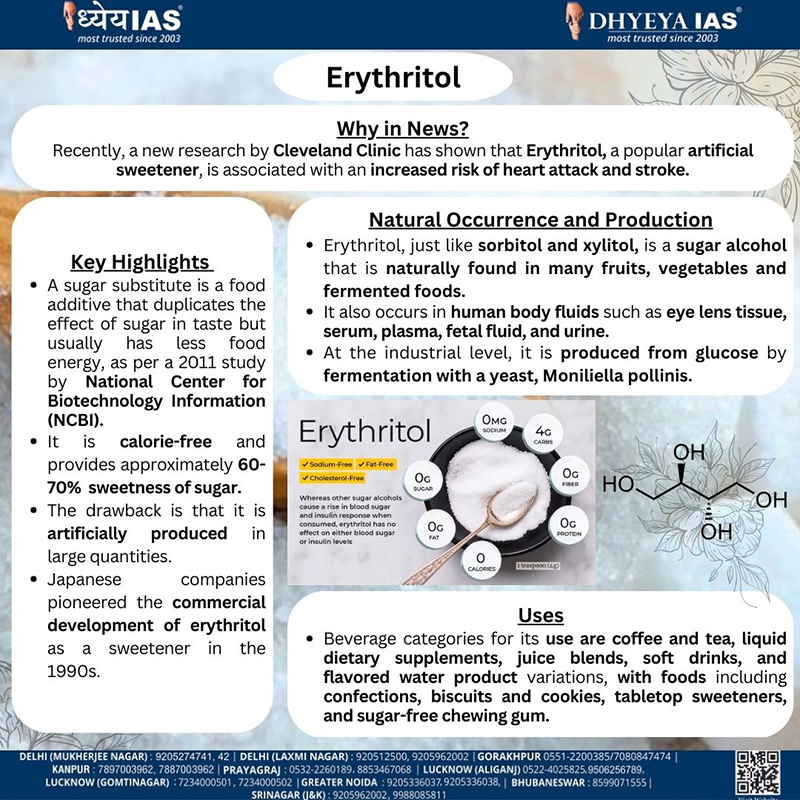
Why in News?
- Recently, a new research by Cleveland Clinic has shown that Erythritol, a popular artificial sweetener, is associated with an increased risk of heart attack and stroke.
Key Highlights
- A sugar substitute is a food additive that duplicates the effect of sugar in taste but usually has less food energy, as per a 2011 study by National Center for Biotechnology Information (NCBI).
- It is calorie-free and provides approximately 60-70% sweetness of sugar.
- The drawback is that it is artificially produced in large quantities.
- Japanese companies pioneered the commercial development of erythritol as a sweetener in the 1990s.
Natural Occurrence and Production
- Erythritol, just like sorbitol and xylitol, is a sugar alcohol that is naturally found in many fruits, vegetables and fermented foods.
- It also occurs in human body fluids such as eye lens tissue, serum, plasma, fetal fluid, and urine.
- At the industrial level, it is produced from glucose by fermentation with a yeast, Moniliella pollinis.
Uses
- Beverage categories for its use are coffee and tea, liquid dietary supplements, juice blends, soft drinks, and flavored water product variations, with foods including confections, biscuits and cookies, tabletop sweeteners, and sugar-free chewing gum.
